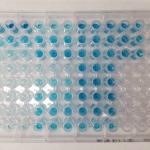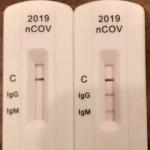Pseudoscience has recently been rampaging in the US. While much of it concerns vaccines, an "oldie" is again making the rounds: the myth that HIV is not the sole cause of AIDS.
epidemiology
Join Cameron English and Dr. Chuck Dinerstein on Episode 82 of the Science Dispatch podcast as they discuss:
Join Cameron English and Dr. Chuck Dinerstein on Episode 81 of the Science Dispatch podcast as they discuss:
The research used our old friend, the UK Biobank, a repository of genetic information on a large number of Brits, as well as a similar genetic registry in Finland, the FinnGen.
Health scares seem to lurk around every corner these days. From "toxic" pesticides to "ultra-processed" foods and BPA, the list of things that can supposedly kill us is endless. How do you spot genuine threats amid all the clickbait?
Are you still afraid of COVID-19? Perhaps it's the prospect of an escalating conflict in Ukraine that has you worried. Forget all that. The real threat to your health might be the IPA or glass of wine you had with dinner last night.
Perhaps the most important question that each of us wants to know in regard to the coronavirus pandemic is, "Will I get COVID and die?" Being able to answer that question with some specificity should help us craft smart public health policies.
How many Americans have been infected by SARS-CoV-2, the novel coronavirus?
Public health officials and the media have been warning us that coronavirus kills not just old or immunocompromised people but young people too. While this is true, it remains relatively uncommon.












